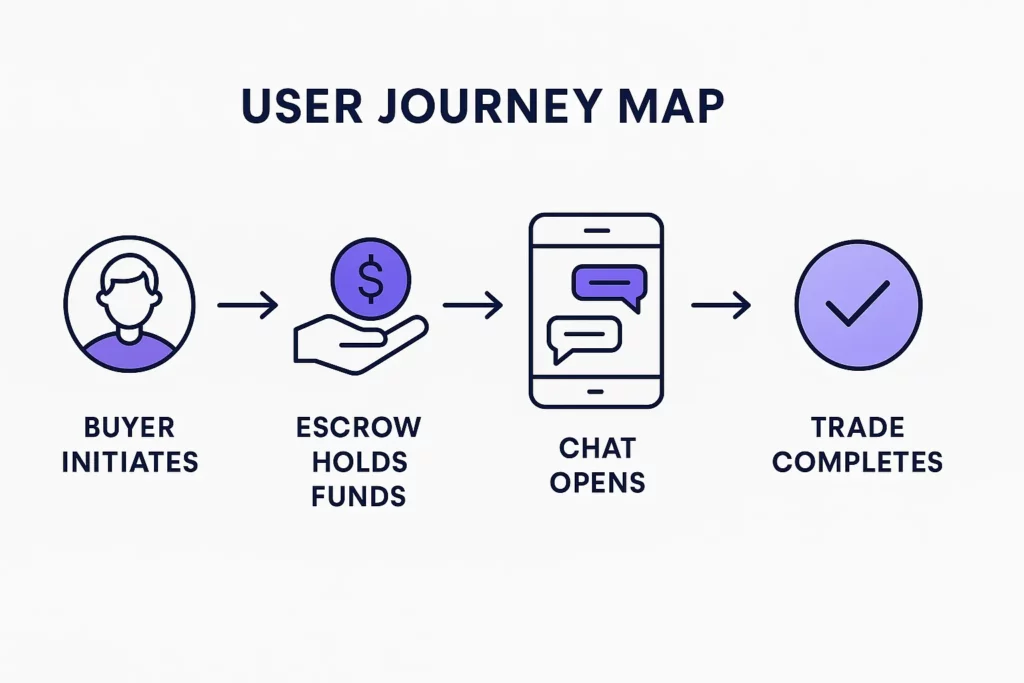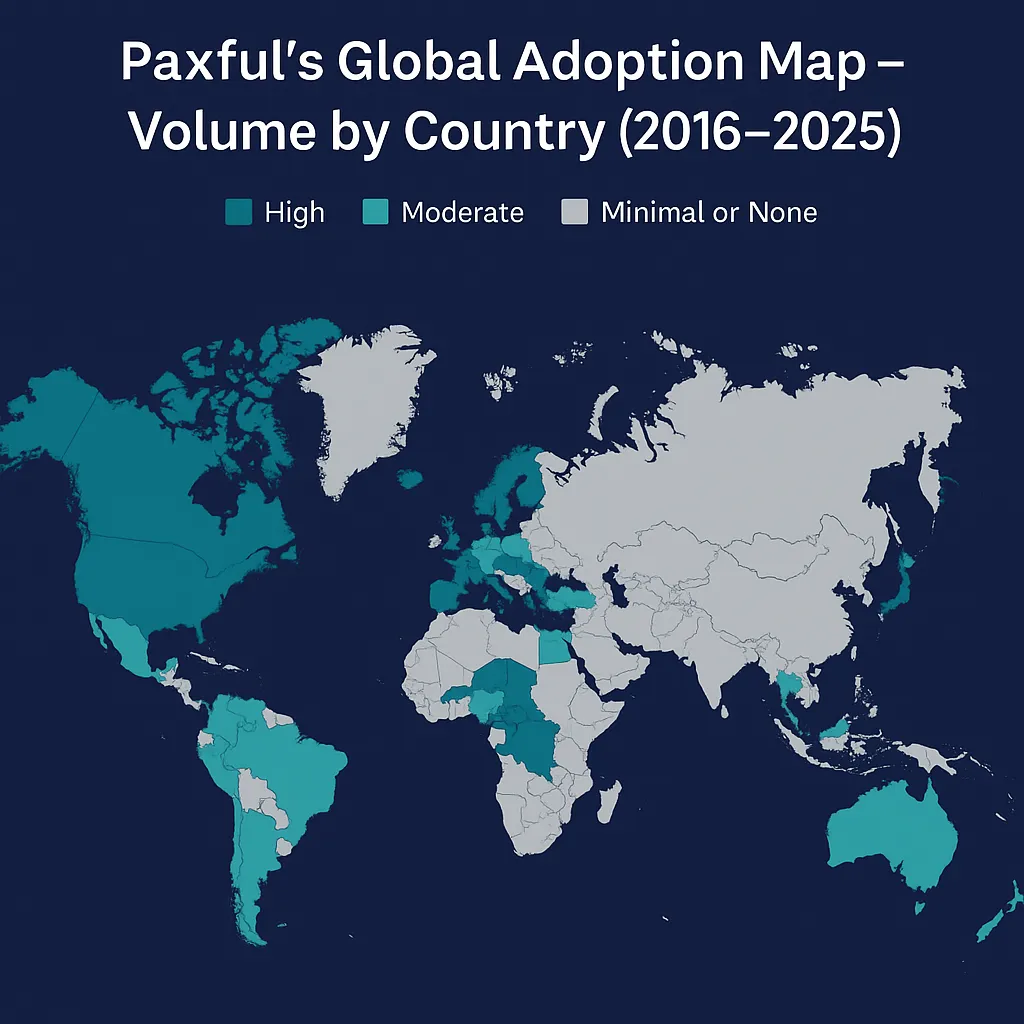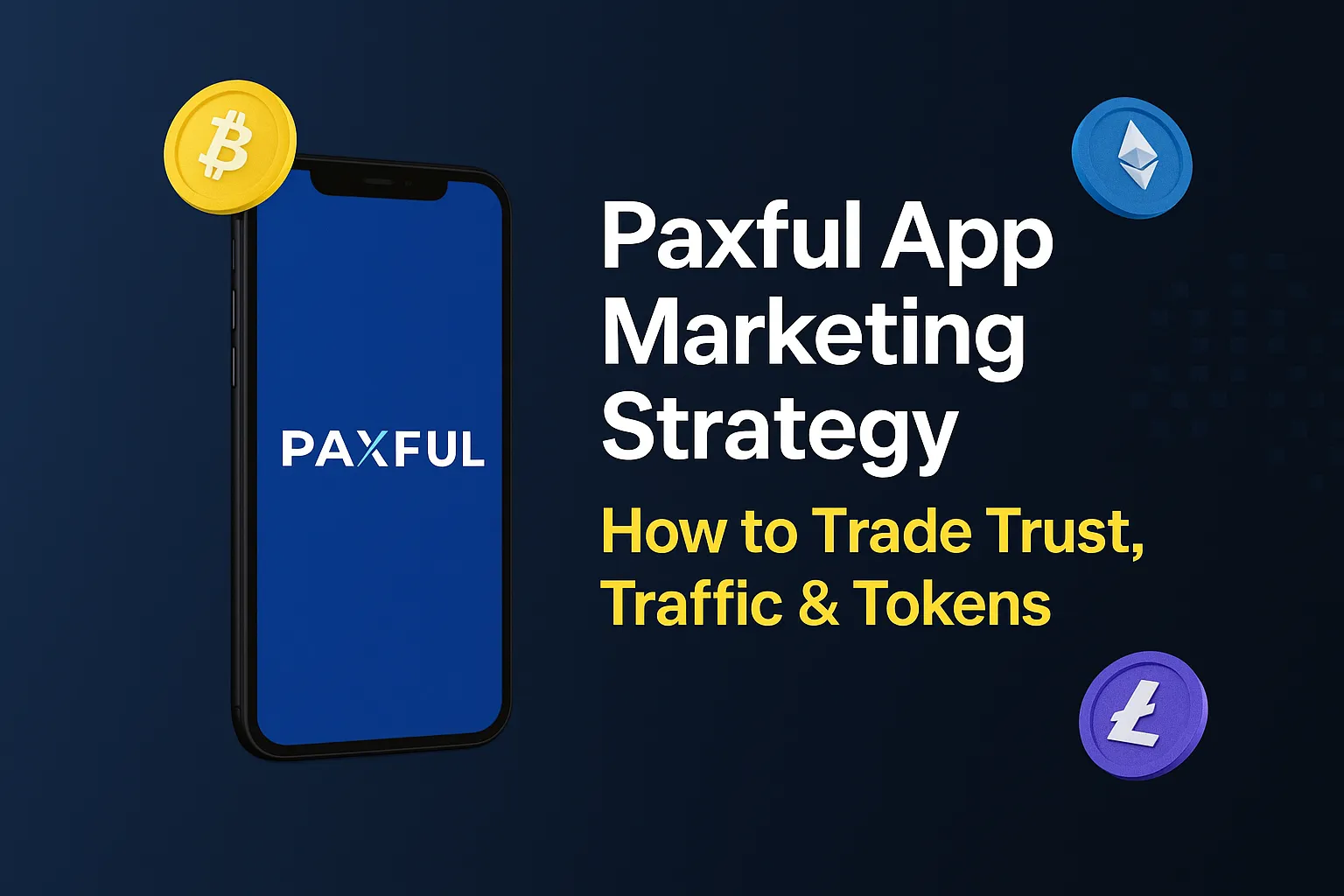You know that feeling when your friend tells you they bought Bitcoin through a random peer-to-peer app — and didn’t get scammed? Paxful made that possible. In a world where crypto feels like the Wild West, this app managed to build something even harder than a secure wallet: trust at scale.
Whether you’re a crypto market enthusiast, a bootstrapped founder, or someone who’s eyeballing the fintech wave from the sidelines — Paxful’s journey shows what it takes to stand out. It didn’t get where it is through fancy tech alone. It got there by speaking the user’s language, earning credibility in risky markets, and doing one thing really well: connecting people safely.
So, if you’re dreaming of building your own crypto trading like paxful or peer-to-peer platform, this post will walk you through the real marketing moves behind Paxful’s success — and how Miracuves helps bring ideas like these to life.

How Paxful Built More Than Just a Crypto Marketplace
Paxful isn’t just another Bitcoin trading app. It’s a grassroots fintech movement in disguise.
Marketing Through Community
Instead of competing with exchanges like Binance or Coinbase, Paxful played a different game — peer trust. Its marketing centered around storytelling, testimonials, and financial empowerment — not just trades.
Focus on Education & Trust
Paxful doubled down on educating users via blog content, YouTube explainers, regional webinars, and FAQs. In crypto, where fear runs high, knowledge is currency.
Localization Was Everything
Paxful didn’t just drop into countries — it embedded. In Nigeria, it became the way to buy Bitcoin. In India, it marketed itself through UPI-based trading tutorials. The result? A hyper-engaged user base that felt like the app was made just for them.
Pre-Launch and Early Growth: What Startups Can Steal
Paxful didn’t splash onto the scene with a Super Bowl ad. It grew from the ground up.
1. Nail the Value Proposition Early
“Buy Bitcoin with gift cards” — Paxful’s earliest pitch was laser-focused, unique, and super clear. The takeaway? Specificity scales.
2. Word-of-Mouth Through Trust Layers
Paxful didn’t just ask people to refer friends — it gave them tools. Think escrow assurance, dispute resolution, and loyalty rewards for volume traders.
3. Crypto-Focused Influencers
They didn’t blow the budget on mainstream celebs. They worked with YouTubers and Twitter personalities in the crypto space — people users already listened to.
Post-Launch Marketing Tactics That Worked
ASO for the Win
Paxful ranked for long-tail queries like:
- “how to buy bitcoin with Paytm”
- “sell BTC in Nigeria”
- “Bitcoin with gift cards”
Its app description wasn’t fluff — it was keyword gold. Screenshots were transactional, not just pretty.
Multi-Platform Retargeting
- Facebook/Meta Ads: Targeted crypto-curious users by country
- Google Search: Captured bottom-of-funnel users with price + exchange rate terms
- YouTube: “How to buy crypto P2P” explainer series
Building Trust Through UX
In crypto, design = trust. Paxful nailed this.
Clear Escrow Flow
Every transaction showed a progress bar — from initiation to release — with timestamps and logs.
Profile Ratings
Buyers and sellers had visible reputation scores, badges, and dispute stats. It made strangers feel like verified allies.
Push Notifications That Reassure
- “Your Bitcoin is in escrow.”
- “Transaction complete. Leave a review.”
- “You’re 1 trade away from a loyalty badge!”
Features of Paxful Clone
Paxful didn’t just run ads — they built a community of teachers and evangelists.
1. Regional Ambassadors
They recruited local crypto heads to host events, moderate groups, and answer questions. Telegram and WhatsApp were gold mines.
2. YouTube Education Series
From “What is P2P trading?” to “Avoiding scams 101,” they made intimidating concepts digestible.
3. Reward-Driven Referrals
Every invite was trackable. The more you brought in, the more you earned. Simple.
Learn More: Top Paxful Features Explained for P2P Crypto App Success
Growth Tactics for 2025: What’s Still Relevant?
Gen Z First
Crypto’s newest user base is under 25. Paxful’s future campaigns will lean hard on meme culture, TikTok explainers, and short-form UGC.
Regional Licensing = Marketing Leverage
As countries tighten crypto laws, licensed apps will lead the conversation. Use regulatory approval in your copy — it builds credibility instantly.
Ready to build your own P2P crypto exchange? Build Your Own Paxful Clone App

Conclusion
Paxful didn’t just sell crypto — it sold access. In markets where banking fails people, it offered empowerment. And in the jungle of blockchain buzzwords, Paxful kept it human.
At Miracuves, we help innovators launch high-performance app clones that are fast, scalable, and monetization-ready. Ready to turn your idea into reality? Let’s build together.
FAQs
How did Paxful become popular in emerging markets?
By combining local payment support, trust features, and influencer education. They met people where they were.
Is influencer marketing effective for crypto apps?
Absolutely — especially niche YouTube channels, Twitter personalities, and Telegram groups focused on crypto.
What are Paxful’s strongest marketing channels?
Community engagement, educational content, and keyword-driven ASO have been key pillars.
How can I market a Paxful-style app on a small budget?
Start with content, referrals, and micro-influencers in specific regions. Build credibility before scale.
What trust features matter most in P2P apps?
Escrow protection, dispute resolution, trader ratings, and a clean, transparent UI.
Should I localize my crypto app
Yes — support local payment methods, languages, and regulatory frameworks. It’s what builds traction.








